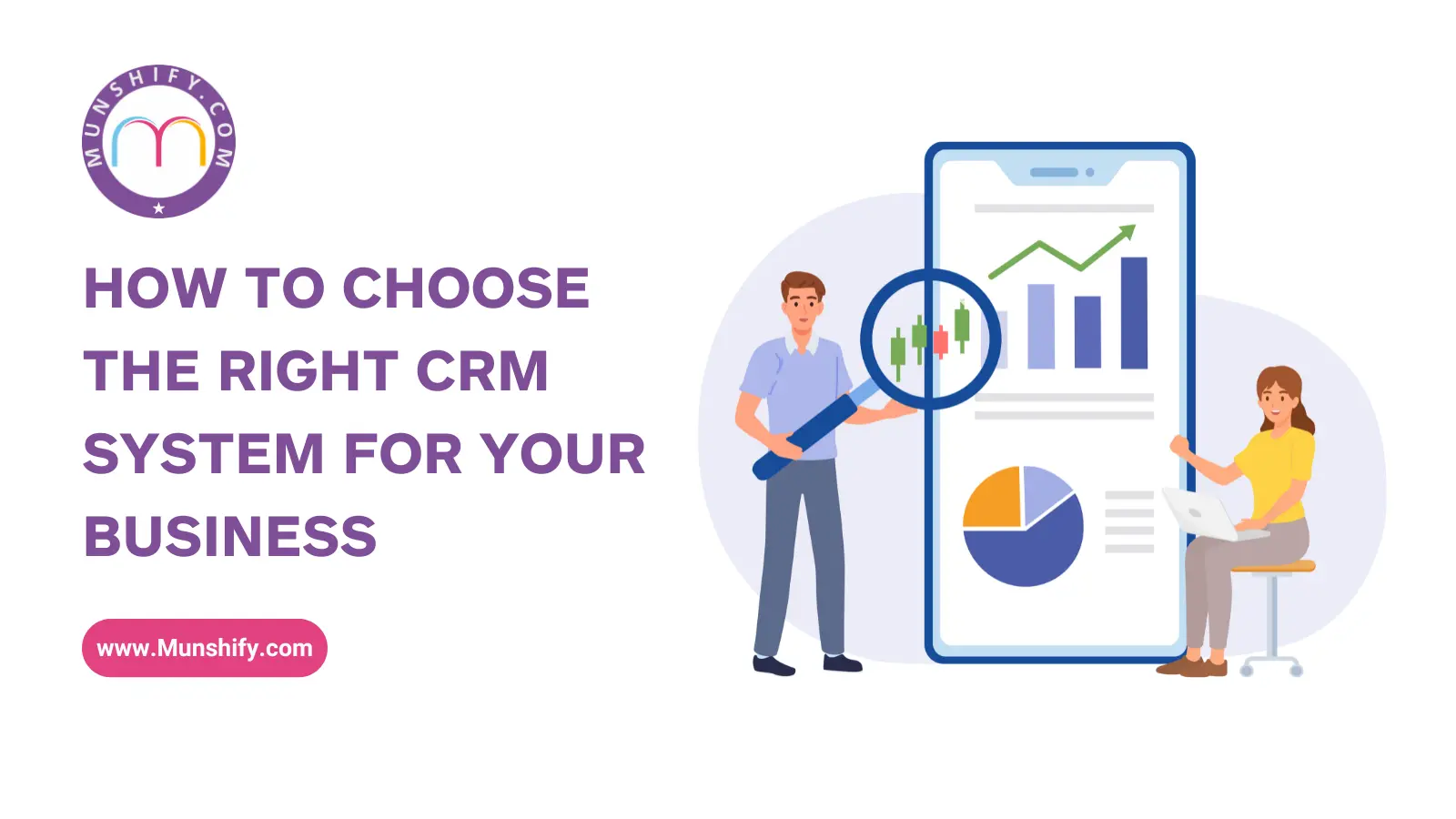Choosing the right CRM system for your business can be a game-changer, enhancing customer relationships and streamlining operations. It will be crucial to understand how to select a CRM system that aligns with your business goals. This guide will help you navigate the decision-making process, ensuring you find the perfect fit for your business.
Table of contents:
- Understanding CRM Systems
- Identifying Business Needs
- Evaluating Features
- Considering Integration and Scalability
- Assessing User Experience
- Budget and Cost Considerations
- Vendor Reputation and Support
Understanding Your Business Needs
Before selecting a CRM system, it is important to evaluate your business requirements. Assessing current processes and identifying areas for improvement will aid in determining the essential features needed in a CRM system. Factors such as the size of your business, industry-specific needs, and customer interaction methods should be considered.
Identifying Business Needs
To choose the right CRM system, identifying your business needs is essential. Determine the specific requirements of your sales, marketing, and customer service teams. Consider what pain points exist in your current processes and which features are crucial for your operations. By clarifying these needs, you can better narrow down your CRM system options. This targeted approach ensures that the chosen CRM aligns with your business objectives and enhances overall efficiency.
Evaluating Features
When evaluating CRM system features, a thorough analysis is necessary. Look for features that support your business needs, such as contact management, sales automation, marketing automation, customer service tools, and reporting and analytics. Assess how each feature can address your specific pain points and improve your workflow. Comparing these features across different CRM systems will help in finding the best match. Ensure that the chosen CRM system offers comprehensive tools to enhance productivity and customer relationship management.
Learn more about: The Role Of CRM Software In Personalizing Customer Interactions
Considering Integration
The chosen CRM system should integrate seamlessly with your existing tools and systems. Whether it’s your email platform, accounting software, or e-commerce site, compatibility is key. Additionally, consider scalability; the software should grow with your business, accommodating increased data and user requirements. Ensure that the CRM can handle future expansions and integrate new technologies as they become available. This approach guarantees long-term usability and flexibility, supporting your business as it evolves.
Assessing User Experience
User experience plays a significant role in the successful adoption of a CRM system. Ensure the system is intuitive and easy to use, minimizing the learning curve for your team. A complicated interface can lead to low user adoption rates and hinder productivity. Providing adequate training sessions and ongoing support can help mitigate these issues. Prioritizing user-friendly design ensures that your team can fully leverage the CRM system’s capabilities to improve customer relationships and business processes.
Budget and Cost Considerations
While selecting a CRM system, budget and cost considerations cannot be ignored. Evaluate the total cost of ownership, including initial setup costs, subscription fees, and maintenance expenses. Consider any additional costs for customizations, integrations, and user training. Choose a system that fits within your budget while still providing the necessary features and benefits. Balancing cost with functionality ensures you get the best value without compromising on essential capabilities.
Vendor Reputation and Support
Vendor reputation and support are critical considerations when selecting a system. Research the vendor’s reputation through customer reviews and industry reports. A reputable vendor will offer quality products and excellent customer service, including comprehensive support, training resources, and timely updates. Prioritizing vendor reliability ensures a smooth implementation and ongoing satisfaction with your CRM system choice.
Final words, selecting the right CRM system for your business involves careful consideration of various factors. By understanding CRM systems, identifying business needs, evaluating features, considering integration and scalability, assessing user experience, and examining budget and vendor reputation, you can make a well-informed decision. The right CRM system will enhance your customer relationships and drive business success.
Visit Munshify.com to learn how our CRM solutions can make your business more efficient and improve customer relationships.



